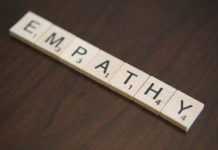Racial Discrimination a Clear Contributor to Youth Mental Health Disparities
Greater perceptions of discrimination during adolescence are linked to more depressive and internalizing symptoms.
Child Abuse and Violence Survivors are Being Re-Traumatised
From The Independent: Recently, psychiatric patients used the hashtag #AbusedByServices to tweet about their experiences being re-traumatized by mental health services. The hashtag reflects the...
How to Die
From The Atlantic: The existential psychotherapist Irvin Yalom, who has helped countless people grapple with their mortality and fear of death, is now coming to...
An Alternative Perspective on Psychotherapy: It is Not a ‘Cure’
Kev Harding argues against conceptualizations of therapy as a ‘cure’ to an ‘illness’ and instead offers alternative approaches.
Healing From Schizophrenia
My experience is that living in a psychosis forces your brain to "stretch" — you develop extra capacity to handle things. I was pretty much living a normal life, even working some of the time, while having all of my psychotic problems. After the psychoses faded away, I no longer needed to fight monsters, but I still had that extra capacity left. After 11 periods of psychosis, my brain has never worked as well as it does now.
Yogurt Cooperative in Spain Provides a Different Form of Help: Meaningful Work
Every one of the Fageda Cooperative’s 300 workers - from milking shed to packing plant - will tell you that this cooperative makes the finest yogurt in all Spain, if not in the world. Last year, they made 1.4 million yogurts every week. In Catalonia, only Nestle and Danone sell more. But Fageda isn’t in business to make yogurt. For over 30 years, its sole mission has been to provide fully-paid, flexible employment to anyone from the region diagnosed with a mental health problem but who still wants to work.
Everything Matters: a Memoir From Before, During and After Psychiatric Drugs
Psych meds can not only put weight on regardless of how you otherwise care for yourself, they also tend to make people feel gravely lethargic and vaguely sick all the time. I could not exercise as I had before. Could not. It doesn't matter how much mental health professionals try to tell us that if we just exercised we'd be okay in the face of neurotoxic drugs that cause weight gain, because the fact is the drugs impede that capacity. This is not widely appreciated or understood and people on psych meds are again traumatized and made to feel guilty for something that is truly outside of their control as long as they are taking these medications.
Enslaved to Abilify
A very gifted and compassionate friend recently said that she feels enslaved to Abilify - that she has tried to taper off it several times but always ends up slipping into an extreme state, no matter how slow she tapers. She said this repeated experience makes her feel like a slave, because she has to go back on the drug to stop the very intense extreme state induced whenever she tries to stop taking it.
Students With Mental Health Conditions Find Support at BU
From STAT: For the past three years, Boston University has offered one of the few programs in the nation dedicated to teaching students who have...
Mindfulness Meditation Comparable to Medication for Depression
Researchers from Johns Hopkins, publishing in the Journal of the American Medical Association, reviewed the research literature on mindfulness meditation to find that it...
Do I Have Too Many Questions This Morning?
What if it were the sun that could cure you; would you have the courage to go and find it? Would you wear sunscreen?
If...
The Impact of Mindfulness on Mental Health Stigma Resistance
A new study examines the association of mindfulness and stigma resistance among individuals with a psychiatric diagnosis.
Interventions that Promote Disclosure Among Voice-Hearers
The perspectives of the voice-hearers featured in the research underscore that stigma and negative perceptions of voice hearing present significant obstacles within early intervention programs.
Listening to, Rather Than Trying to Fix, My Suicidal Wife
From The Guardian: One man shares how listening to his wife when she experienced suicidality, rather than rushing to action or attempting to dissuade her...
Belief in a Favorable Future May Undermine that Future
People who are more likely to believe that others’ views will change to match their own over time are less likely to engage in actions to facilitate that change
Six Ways You Can Really Help Prevent Suicide
The first time I tried to kill myself, I was 14. I won’t go into the indignity of being involuntarily locked up, time after time, until I satisfactorily convinced the staff that I wouldn’t harm myself or attempt suicide again. (I was lying.) The system taught me to lie, to hide my suicidal feelings in order to escape yet another round of dehumanizing lock-ups and “treatments.”
More Evidence That Physical Activity Prevents Depression
Higher levels of physical activity serve as a protective factor for the future development of depression.
Therapist Empathy Predicts Success in Psychotherapy
An updated meta-analysis reveals that therapist empathy is a predictor of better psychotherapy outcomes.
Bullying & its Long-Term Effects on Wellness
Psychologist William Copeland writes for Mental Health Recovery that “bullying can occur at any age and the effects of which remain harmful long after the behavior has been endured.” “We, as a society, are just beginning to understand and come to terms with the havoc that bullying wreaks on the emotional lives of its victims.
Mindfulness Therapy May Be More Effective Without Antidepressants
While an estimated 74-percent of patients diagnosed with major depression receive a prescription for an antidepressant, new research reveals that mindfulness-based cognitive therapy (MBCT)...
How to Involve Youth in Their Own Mental Health Care
Clinicians play a key role in empowering adolescents and their parents to make decisions about their mental health treatment.
Symptom Remission Does Not Equal Recovery
Researchers in the Netherlands and the U.K. explored the relationship between symptom reduction in schizophrenia (according to Andreason's 2005 criteria for remission) and social...
Common Sense, Deferred: Lessons From the “Fresh Air” Fight, Part One
How does a straightforward, common-sense idea - guaranteeing the elemental pleasures of fresh air and access to nature to those in inpatient and residential psychiatric/mental health facilities – repeatedly fail on a policy level?
Disease Theory of ‘Mental Illness’ Tied To Pessimism About Recovery
Researchers recently completed a first of its kind, large-scale international survey of attitudes about mental health and they were surprised by the results. According to their analysis published in this month’s issue of the Journal of Affective Disorders, people in developed countries, like the United States, are more likely to assume that ‘mental illnesses’ are similar to physical illnesses and biological or genetic in origin, but they are also much less likely to think that individuals can overcome these challenges and recover
Classism in Disguise
For everyone who goes on psychiatric drugs, the reason comes back to power imbalances in their personal life. Women who's husbands “make all of the money” and have an unequal share of the power, kids who's parents have power over them—frequently people who have less money and security, therefore less platform for authority than those around them. Mental illness is not in fact an illness but an unequal division of power and sense of security in a social group.
























